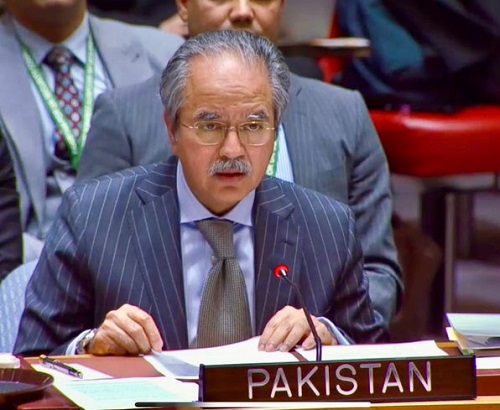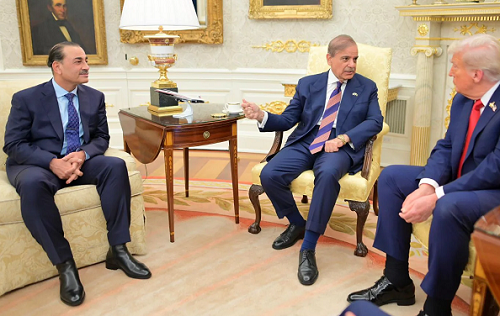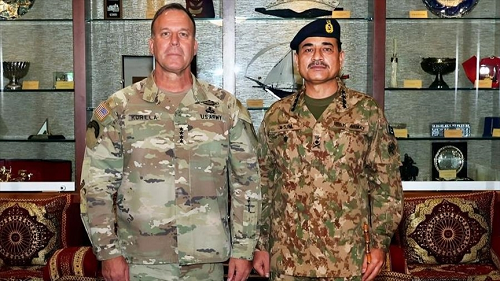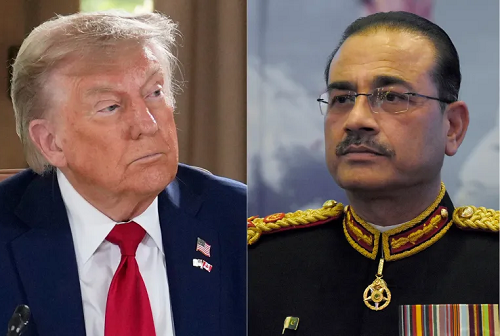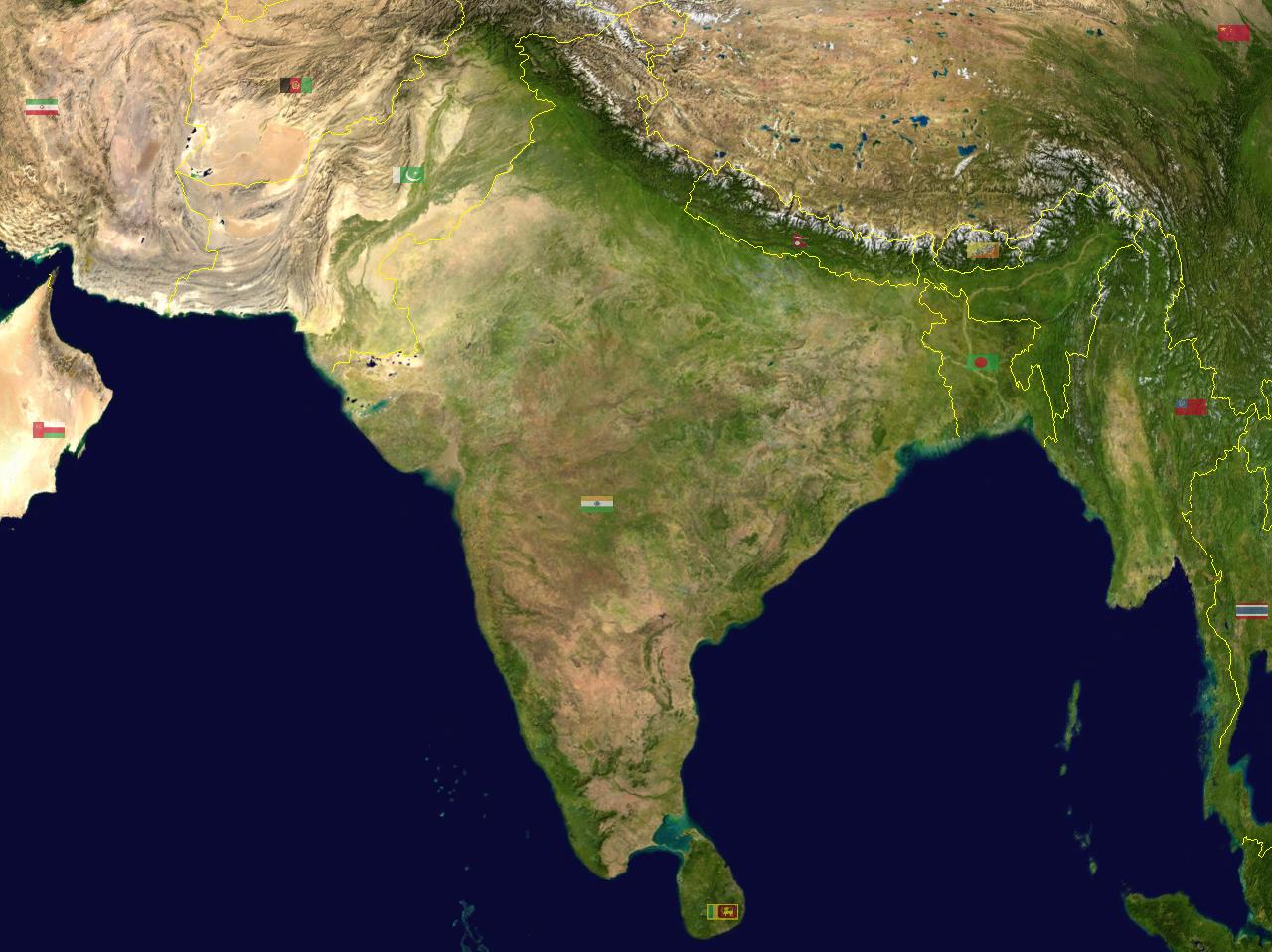By Hafeed Akhtar Mukhtar
THE war of Mahabharata is mentioned in many important Hindu religious and historical texts like the Bhagavad Gita, Harivansh Puran, Vishnu Puran, and Bhavishya Puran. However, its detailed description is found in the epic Mahabharata. This war is presented as if it happened in the past, similar to how some people mistakenly think that Ghazwat-ul-Hind (the battle of India) is a past event. But the reality is different. In fact, both of these wars point to the same great battle — not just a war between two nations, but a major battle between truth and falsehood.
A well-known religious scholar of India, Maulana Shams Naveed Usmani (RA), who was also an expert in the Sanskrit language, deeply studied Hindu religious texts. According to him, Ghazwat-ul-Hind and Mahabharata are two names for the same foretold event, and this war has not happened yet — it will occur in the end times.
He writes:
"This Ghazwat-ul-Hind is what was called Mahabharata in the Vedic language — a battle that is yet to come, but people mistook it for a past event and turned it into a legend."
(See his book Agar Ab Bhi Na Jaagey To)
It is true that the original meanings of ancient religious texts have been distorted over time. But the main lesson of Mahabharata remains clear: it was a principled war — a conflict between kinship and principles, between destruction caused by ego and greed, and the victory of truth and justice.
This war was fought between the Kauravas and the Pandavas. The Kauravas were a hundred brothers (symbolizing the world united on one side), while the Pandavas were five brothers (seen by some as symbolic of Pakistan's five regions: Punjab, Afghanistan, Kashmir, Sindh, and Balochistan). The Pandavas stood for truth, and the Kauravas represented falsehood. The Pandavas were tricked and sent into exile, but in the end, they were the ones who won.
Now let us turn to the Hadiths of the Prophet Muhammad ﷺ.
It is narrated by Thawban (RA) that the Prophet ﷺ said:
“A group from my nation will attack India. Allah will grant them victory. They will bring the kings of India in chains. Allah will forgive their sins. Then they will return to Syria and remain there.”
(Musnad Ahmad, Hadith 22396, Vol. 37, Pg. 81; Sunan al-Kubra al-Nasa’i: Hadith 3175, Book of Jihad, Chapter: Ghazwat-ul-Hind)
Hazrat Abu Huraira (RA) narrated that the Prophet ﷺ said:
“Two groups of my nation will be saved from the fire of Hell: one group that will attack India, and another that will be with Jesus, son of Mary.”
(Same sources)
Both of these Hadiths are graded as “Hasan” (sound).
Now the question arises: Is the current Pakistan-India conflict the same as Mahabharata and Ghazwat-ul-Hind, or are we still waiting for a bigger war?
Recently, Pakistani scholars made a historic unanimous declaration:
“Jihad for Al-Quds and Palestine has now become obligatory upon us (the Pakistani state).”
Even before this, religious scholars have come together on national issues by setting aside sectarian differences — a bright chapter in Pakistan’s religious history.
Following this fatwa, the public also raised their voice and demanded action from the state. The leader of Jamaat-e-Islami Pakistan, Hafiz Naeem-ur-Rehman, strongly supported this call. Millions of people across Pakistan took to the streets in historic protests for Palestine — a level of awareness rarely seen elsewhere in the world.
At this point, Israel played its role. In an effort to divert Pakistan’s attention from Palestine, a conspiracy was hatched to entangle Pakistan and India in a two-nation war. This didn’t start with the 22 April 2025 attack in Pahalgam, Kashmir, but earlier — on 11 March 2025, when the Jaffar Express was attacked in Bolan district, Balochistan. In that attack, 26 men were martyred, while women and children were spared. A similar pattern was followed in the Pahalgam incident — 26 men killed, women and children unharmed. Both events appear to be linked parts of the same conspiracy.
On the night between 6 and 7 May, India attacked civilian targets in Pakistan under the pretext of fighting terrorism. Masajid were destroyed, Qur’ans were burned, and innocent men, women, and children were martyred. In response, Pakistan shot down five Indian fighter jets and several drones.
Now, Pakistan and India stand at the edge of war. Is this just a brief skirmish or the start of a long conflict? If we look beyond just military strength and victory or defeat, it seems likely that this war may escalate — and could fulfill the prophecy of Ghazwat-ul-Hind.
It is important to remember: we should not fear the term Ghazwa (sacred battle). It refers to a just war — a war between truth and falsehood — where innocent lives will not be harmed. Even on the battlefield, women and children will be protected.
The famous historian of Prophet’s biography, Dr. Hamidullah, wrote that the Prophet ﷺ always aimed for maximum success with minimal loss of life. Throughout his blessed life, there were a total of 74 battles and military expeditions, in which only 250–300 companions were martyred, while enemy losses were around 1,000–1,500 — itself a miracle.
If Ghazwat-ul-Hind and Mahabharata are truly unfolding now, then it proves that we are entering the end times — and the people of this region (Indo-Pak-Bangladesh Subcontinent) will play a key role alongside Imam Mahdi and Prophet Jesus (AS) in Syria, Palestine, and the Arabian Peninsula. After that, the world will enter a new era of justice and peace.

